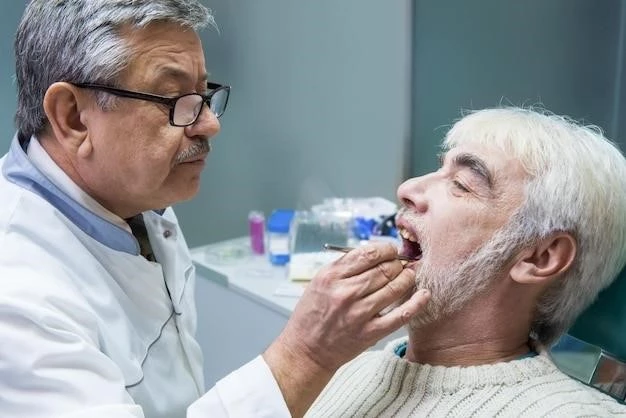Overview of Acral Renal Mandibular Syndrome
Get an overview of Acral Renal Mandibular Syndrome to better understand this condition and its impact on individuals․
Understanding ARMS and its Impact
Acral Renal Mandibular Syndrome (ARMS) is a rare genetic condition that affects the development of limbs, kidneys, and the jaw․ It is essential to grasp the implications of ARMS on both physical and emotional well-being․ Individuals with ARMS may face challenges in mobility, kidney function, and oral health, impacting their daily lives and overall quality of life․ Understanding the complexities of ARMS can help patients, caregivers, and healthcare providers navigate the management and treatment of this syndrome effectively․ By comprehending the genetic and symptomatic aspects of ARMS, individuals can make informed decisions regarding their health and well-being․ Seeking support from healthcare professionals, genetic counselors, and support groups can also contribute significantly to coping with the impact of ARMS․ Remember, knowledge is empowering, and understanding ARMS is the first step towards managing its effects and embracing a holistic approach to care․
Genetic Causes of Acral Renal Mandibular Syndrome
Learn about the genetic factors contributing to Acral Renal Mandibular Syndrome for a deeper insight into its underlying causes․
Exploring the Genetic Basis of ARMS
ARMS is primarily caused by mutations in the TP63 gene, affecting limb, kidney, and craniofacial development․ Understanding the genetic basis is crucial for diagnosis, treatment, and genetic counseling․ Research continues to shed light on the intricate relationship between genetics and ARMS, paving the way for targeted therapies and personalized interventions․ Delve into the genetic complexities of ARMS to comprehend the intricate mechanisms driving this syndrome and explore the latest advancements in genetic research that may offer new hope and insights for individuals affected by this rare condition․ By staying informed about the genetic underpinnings of ARMS, patients, families, and healthcare providers can navigate the challenges posed by this syndrome with greater clarity and purpose․
Symptoms and Diagnosis of ARMS
Discover the common signs and diagnostic procedures for accurately identifying Acral Renal Mandibular Syndrome;
Recognizing Symptoms and Seeking Diagnosis for ARMS
Being able to identify symptoms like limb abnormalities, kidney issues, and jaw anomalies is crucial․ Early diagnosis through genetic testing and medical evaluations is essential for timely interventions․ If you or a loved one exhibit any signs of Acral Renal Mandibular Syndrome, consult a healthcare professional promptly․ A prompt and accurate diagnosis can lead to appropriate treatment strategies, personalized care plans, and proactive management of ARMS-related complications․ Stay vigilant, seek medical advice, and advocate for comprehensive evaluations to ensure a timely and accurate diagnosis, enabling proactive measures to enhance health outcomes and quality of life for individuals living with Acral Renal Mandibular Syndrome․
Treatment Options for Acral Renal Mandibular Syndrome
Explore the various treatment modalities available for managing Acral Renal Mandibular Syndrome effectively․
Available Treatment Modalities for ARMS
Managing Acral Renal Mandibular Syndrome involves a multidisciplinary approach․ Treatments may include orthopedic interventions for limb abnormalities, renal care for kidney issues, and dental procedures for jaw anomalies․ Genetic counseling and supportive therapies can also play a vital role in comprehensive care․ It’s essential to work closely with a healthcare team to tailor treatment plans to individual needs and address specific symptoms and complications associated with ARMS․ Stay informed about the latest advancements in treatment options and collaborate with specialists to optimize outcomes and enhance the quality of life for individuals affected by this complex syndrome․ Remember, early intervention and a holistic treatment approach can make a significant difference in managing the challenges posed by Acral Renal Mandibular Syndrome․

Research Advances in ARMS
Stay updated on the latest research developments to understand the evolving landscape of Acral Renal Mandibular Syndrome․
Current and Future Research Directions in ARMS
Ongoing research in Acral Renal Mandibular Syndrome focuses on understanding the molecular mechanisms underlying the condition, exploring targeted therapies, and improving diagnostic techniques․ Future studies aim to enhance treatment efficacy, identify potential genetic modifiers, and advance personalized medicine approaches for individuals with ARMS․ By keeping abreast of current and future research directions, individuals, families, and healthcare providers can contribute to and benefit from cutting-edge discoveries that may shape the future of ARMS management․ Participating in clinical trials, supporting research initiatives, and collaborating with experts in the field can all play a pivotal role in advancing knowledge and ultimately improving outcomes for those affected by this rare syndrome․
